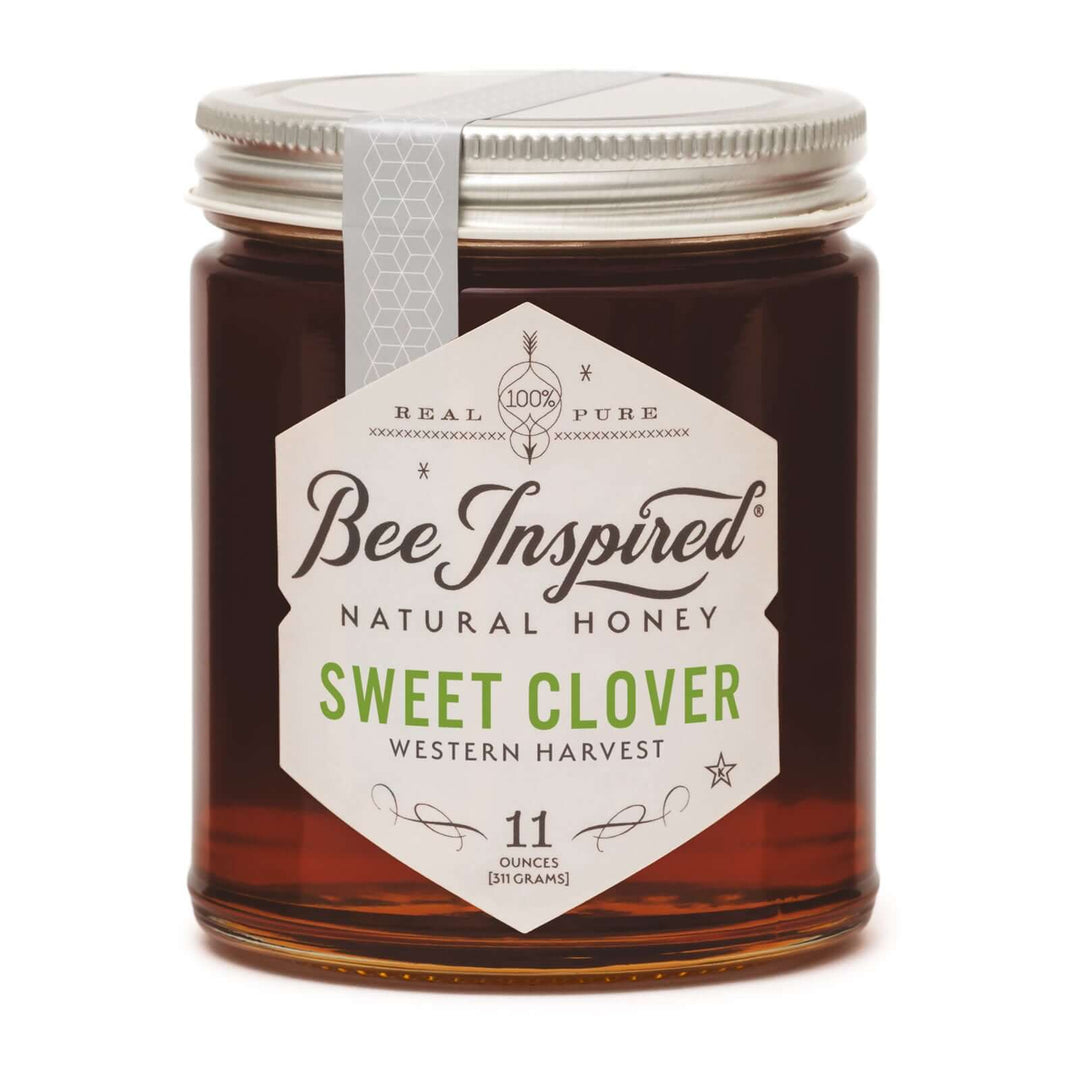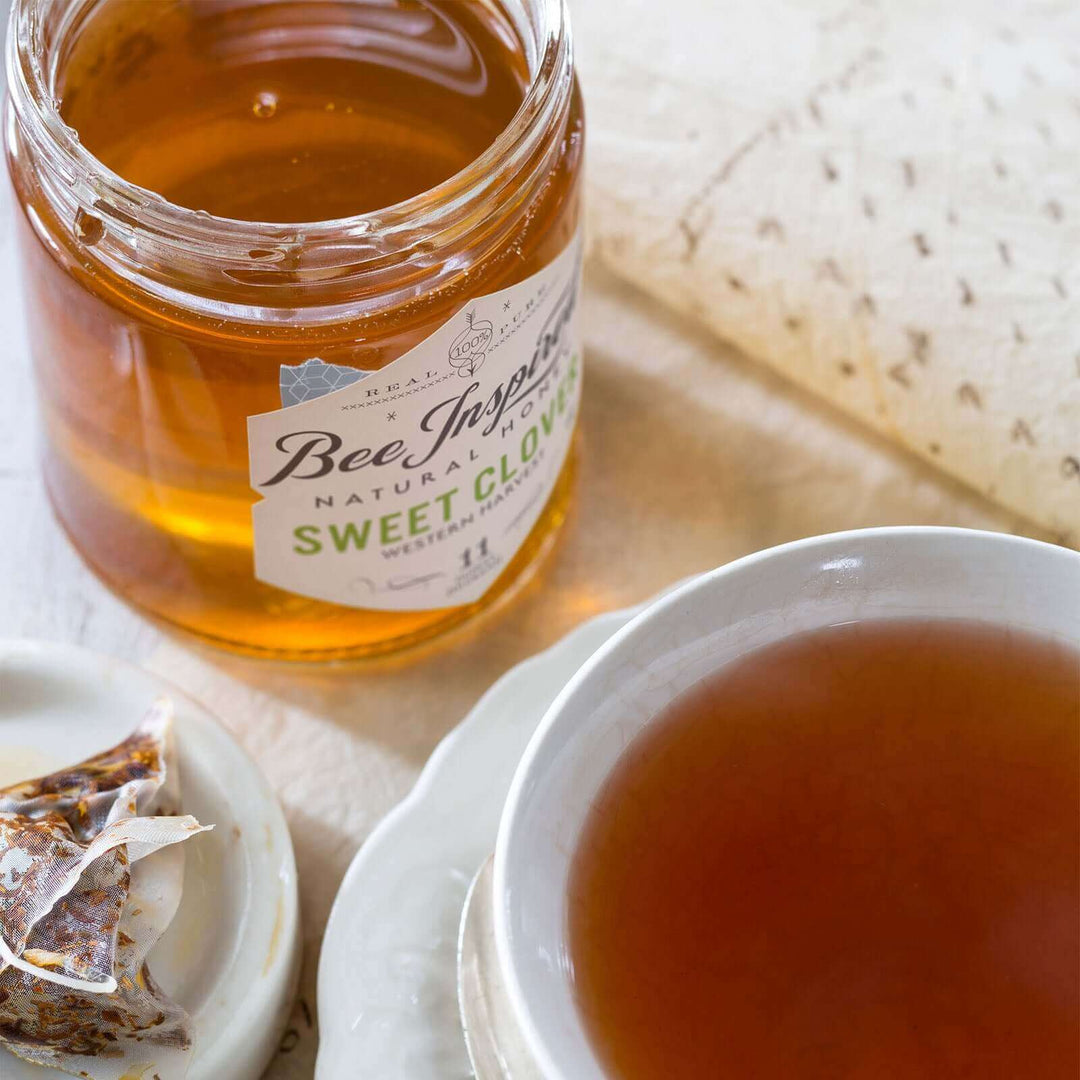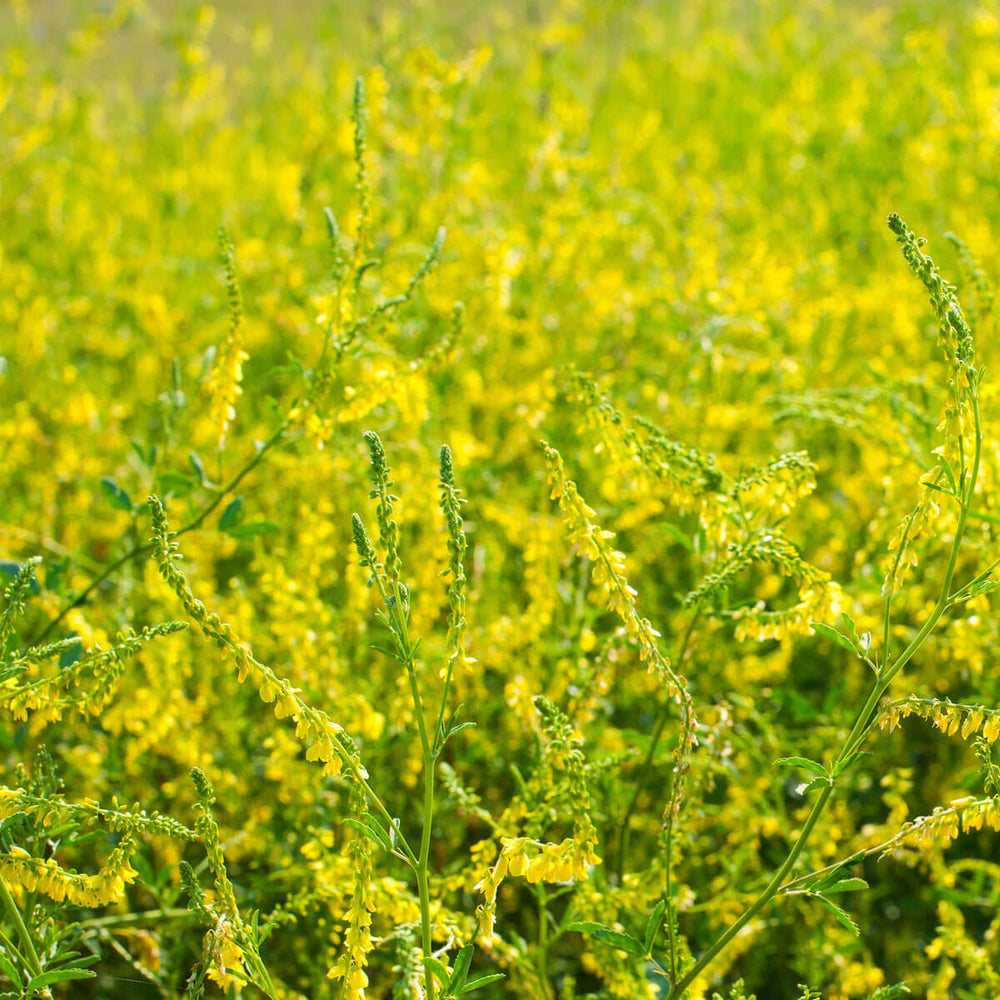Why Our Sweet Clover Honey Is So Special: True Sweet Clover Honey represents so much more than standard clover varieties. The yellow sweet clover (Melilotus officinalis) thrives in the natural pastures of the Dakotas, where its rapid growth and reliability make it an excellent June nectar source for honeybees. This plant's resilience allows it to establish easily in various environments, contributing to its widespread cultivation. Beyond producing exceptional honey, sweet clover enriches the soil with nitrogen, fights weed growth, and adds beauty to the landscape with its tall yellow spikes – a perfect example of agricultural symbiosis that benefits both the environment and honey production.
The Sweet Clover Story: Our Sweet Clover Honey tells the story of sustainable agriculture in America's heartland. The sweet clover plant, with its tall yellow spikes reaching up to five feet, creates vast golden fields across the Dakotas during summer months. This resilient plant thrives where others struggle, establishing itself easily in various environments. Beyond its visual beauty, sweet clover serves multiple ecological functions – enriching the soil with nitrogen, fighting weed growth through competition, and providing a reliable nectar source for honeybees. The plant's abundant blossoms appear in June, creating an important honey flow period that results in a distinctively flavored honey. The relationship between sweet clover and honeybees exemplifies agricultural harmony – the bees receive abundant nectar while providing essential pollination services that benefit the ecosystem. This partnership is so valuable that we've added a field of clover to our own farm, recognizing its benefits for both honey production and soil health.
Beyond Ordinary Clover Honey: While clover honey is one of the most common varieties, Sweet Clover Honey offers a more distinctive experience
- Produced specifically from yellow sweet clover rather than white clover or other varieties
- Features unique flavor notes of cinnamon and caramel not found in standard clover honey
- Offers a thicker consistency and more pronounced sweetness
- Provides potential allergy-soothing benefits from its specific pollen content
- Contains the natural goodness of a plant known for soil enrichment and environmental benefits
- Represents a connection to the agricultural traditions of the American heartland
- Delivers a more complex sensory experience through its distinctive aroma
The Sweet Clover Honey Difference: Unlike typical clover honey varieties, our Sweet Clover Honey stands apart with remarkable characteristics
- Flavor Profile: Experience a delightfully sweet taste with distinctive notes of cinnamon and caramel that creates a uniquely satisfying tasting experience.
- Texture: Enjoy the thick, substantial consistency that makes it perfect for drizzling and spreading.
- Aromatic Quality: Appreciate its unique aroma that enhances the sensory experience beyond taste alone.
- Crystallization Tendency: Recognize its authentic nature – higher in sucrose and quick to crystallize, this honey may naturally solidify faster than some varieties, a sign of quality rather than a flaw. Many enthusiasts enjoy it in its crystallized or whipped form, while others simply warm gently to restore its liquid state.
Serving Suggestions: Elevate your everyday culinary experiences with our premium Sweet Clover Honey
- Drizzle over waffles for a delicious breakfast enhancement
- Add to fresh fruits to amplify their natural sweetness
- Incorporate into smoothies for natural sweetening with subtle complexity
- Stir into hot or iced tea for a perfect flavor complement
- Use in cocktails for a distinctive sweetener with character
- Pair with desserts where its subtle spice notes enhance the experience
- Try it whipped for a spreadable treat with unique texture
Frequently Asked Questions:
1. How does Sweet Clover Honey differ from regular clover honey? Sweet Clover Honey is distinctly different from regular clover honey in several ways. It's produced specifically from yellow sweet clover (Melilotus officinalis) rather than the white clover varieties used in standard clover honey. This botanical difference results in a more distinctive flavor profile with notes of cinnamon and caramel, a thicker consistency, and a unique aroma. Sweet Clover Honey also tends to be higher in sucrose content, causing it to crystallize more quickly than many other honey varieties – a characteristic many enthusiasts appreciate.
2. Why does Sweet Clover Honey crystallize quickly and is it still good when crystallized? Sweet Clover Honey crystallizes more rapidly than many other varieties due to its higher sucrose content. This natural process is actually a sign of quality and purity rather than a defect. Many people enjoy the honey in its crystallized form, with some even preferring its texture and flavor when solidified. Others enjoy it whipped, which creates a smooth, spreadable consistency. If you prefer liquid honey, simply place the jar in warm water to gently return it to flowing form without compromising its beneficial properties.
3. Where does Sweet Clover Honey come from and why is this location important? Our Sweet Clover Honey comes from the Dakotas, where vast pastures of yellow sweet clover flourish in the late summer. This region provides ideal growing conditions for sweet clover, which establishes easily and produces abundant blooms. The specific terroir of the Dakotas – its soil composition, climate, and agricultural practices – contributes to the distinctive character of this honey. The plant's ability to enrich soil with nitrogen while providing bountiful nectar makes it particularly valuable in this agricultural region.
4. What makes Sweet Clover Honey good for allergy relief? Sweet Clover Honey may help soothe seasonal allergy symptoms due to its local pollen content. When consumed regularly, the small amounts of pollen present in raw, unfiltered honey like ours may help the body build tolerance to local allergens through a process similar to immunotherapy. The specific pollens from sweet clover and surrounding Dakota flora create a honey uniquely suited to potentially supporting immune system adaptation to regional allergens.
5. What are the best culinary uses for Sweet Clover Honey? Sweet Clover Honey's distinctive cinnamon and caramel notes make it exceptionally versatile in the kitchen. It shines when drizzled over waffles, pancakes, and fresh fruits, where its thick consistency and pronounced sweetness create a perfect topping. It adds complexity to smoothies and works beautifully in both hot and iced teas. The honey's subtle spice notes enhance desserts while its distinctive character elevates cocktails. Many people also enjoy it simply spread on toast or paired with cheese for a simple yet sophisticated treat.

















